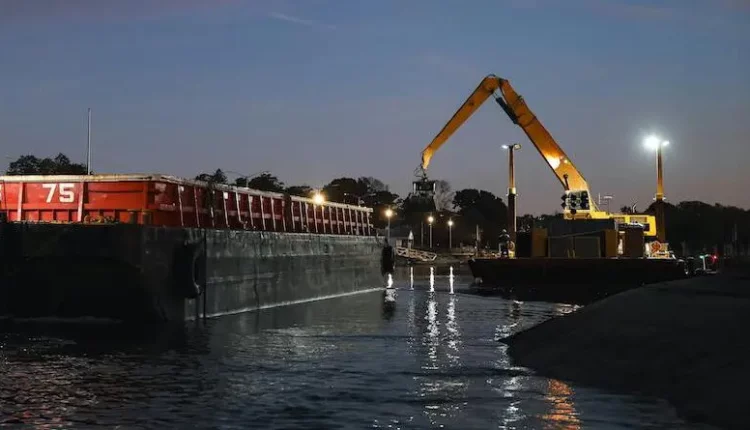Russia and Kazakhstan Launch $6.4 Billion Dredging Project to Save Northern Caspian Offshore Oil Industry
The water level of the Caspian Sea has fallen to its lowest point in recorded history, particularly affecting the northern parts of the sea. This unprecedented decline has severely restricted the navigability of traditional shipping routes and poses a significant threat to ongoing offshore oil extraction operations.
In response to these challenges, Russia and Kazakhstan have jointly initiated a major dredging project aimed at creating a deepened channel through the increasingly shallow northern waters of the Caspian. This channel is intended to ensure continued access for vessels servicing offshore oil wells in both countries.
The project is being spearheaded by two leading energy companies: Russia’s LUKOIL and Kazakhstan’s KazMunayGaz. They emphasize that the channel will be dredged to a depth sufficient for safe passage of supply and transport ships. However, the rapid decline in sea levels may soon necessitate further dredging to maintain access to the internal ports of both nations.
Failure to complete the dredging in a timely manner risks interrupting oil production from existing fields and will likely halt any plans for developing new offshore sites in the northern Caspian region. The two countries aim to finalize the project before the end of this decade to mitigate these risks.
The estimated cost of the dredging initiative stands at approximately $6.4 billion USD, though this figure could rise if sea levels continue to drop or if project timelines are delayed.
This environmental and economic challenge underscores the urgent need for regional cooperation and adaptive infrastructure planning among the Caspian littoral states to safeguard their energy resources and maritime operations.

